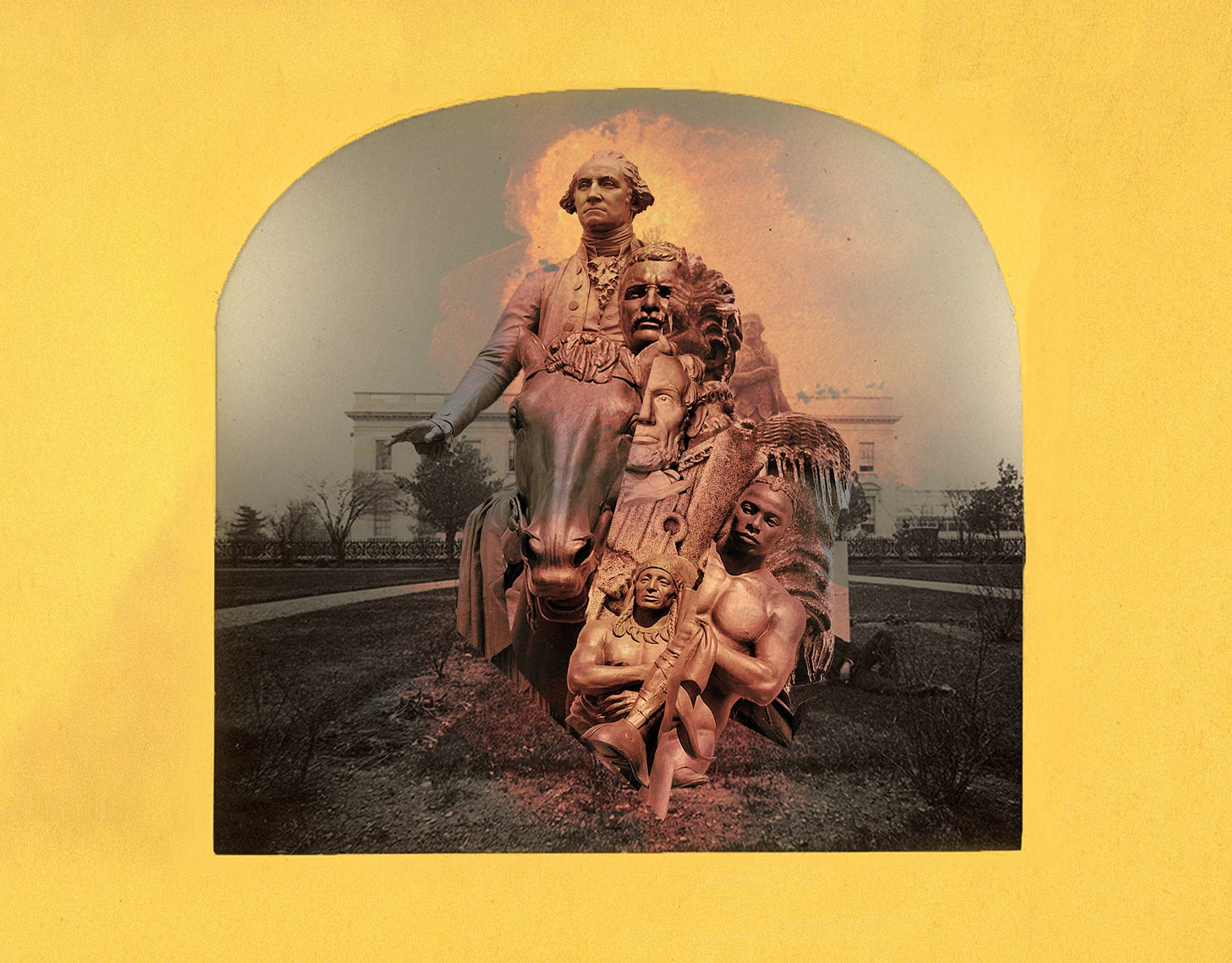What Statues Really Mean
It’s not hard to tell the difference between a monument to George Washington and a monument to a Confederate general.

In all the brouhaha surrounding the removal of statues and flags, it is curious to note that much of the news coverage focuses on the effect these symbols have on people. Some people are proud of them, other people are offended by them, but there doesn’t seem to be anyone asking what the point of these historical relics was in the first place.
So let’s pause for a second and do that. I know this might sound rhetorical but consider the most basic question first: What is a monument?
Here’s the definition from Wikipedia:
A monument is a type of structure that was explicitly created to commemorate a person or event, or which has become relevant to a social group as a part of their remembrance of historic times or cultural heritage, due to its artistic, historical, political, technical or architectural importance.
Notice that this doesn’t say anything about the subject being a terrific person who, if alive and available, would make a great babysitter for your kids.
That’s because monuments are built to commemorate people who achieve great things, and beholding them is a way to recall and celebrate that thing not so much as their personhood and definitely not their personality.
Einstein came up with the theory of relativity and monuments to him celebrate this incredible achievement. Sure, we could put up a statue that says “E=mc2” but that would look kind of weird. So instead, we sculpt Einstein’s face and silly hairdo. But in so doing we’re not celebrating Albert the man. We’re celebrating E=mc2. It doesn’t matter what Einstein’s personal failings were anymore than it would matter if he was also a reasonably good piano player. Because we’re not honoring him. We’re honoring the theory of relativity which he discovered.
There is currently a petition to remove a statue of Walt Whitman at the Rutgers campus in Camden, New Jersey. I’m not making this up! Why? Because Whitman espoused racist views. That’s truly unfortunate. But it also doesn’t diminish the quality of Whitman’s poetry and the monument isn’t about Whitman’s person, it’s to commemorate his poetry because you can’t build a monument that looks like “verse.”
People are—you may have noticed this during your lived experience—imperfect. Frequently fantastically so.
Some of these wildly imperfect people occasionally stumble across truly amazing discoveries or achieve things that are deeply important for our culture. And it is not a crime to celebrate these accomplishments, even if the messengers are flawed.
Which brings us to the statues of the Confederate generals. Here, again, it’s important to ask: What did these men achieve?
Well. They started an uprising against America mostly to preserve their right to keep human beings as chattel. That was their achievement! And in erecting statues to them, that’s the event being commemorated! Again, we have no idea how good or bad these people were. Maybe Robert E. Lee was the kindest, most generous man in his town and perhaps he even roasted the tastiest chicken in all of Virginia. But that’s not why people erected statues of him.
In truth, it’s actually kind of astonishing that statues of Confederates were ever allowed to be put up! Normally the losing army doesn’t get to celebrate its heroes. Normally the losing army gets occupied for decades and re-educated by the victors. Take a look at Germany. See any monuments to the Nazis? No. There aren’t any. But the Germans do have monuments to Richard Wagner, even though he was by all accounts a raging anti-Semite. But Wagner also wrote some astonishingly good music and that is what monuments to him commemorate, not his hatred of the Jews.
So yes, we should absolutely remove the statues that celebrate the “achievement” of starting a traitorous, violent uprising and then losing only after over 750,000 men got killed, because those statues are commemorating that insurrection and nothing else.
George Washington owned slaves—this is a sad fact but that’s not the fact we celebrate when we put up monuments to him! What we’re celebrating is the founding of this nation and the tenets enshrined in the Declaration of Independence. We can question Washington’s ethics and personal life choices all day long. But they aren’t the reason we honor him and if we’re going to stop honoring him because he owned slaves at a time when slave ownership was common, we should all just agree that the very notion of honoring people for their achievements is a bad idea because even if anyone is able to pass a full proctological examination of their personal failings now, we can be pretty sure than within a generation or two, they will also have turned out to believe things which are then considered beyond the pale.
The guiding principle when deciding to erect or remove monuments should be “was this person’s achievement something worthy of celebration and commemoration?”
Otherwise, when it comes time to put up (or take down) statues of Wagner or Michael Jackson you will get lost in the weeds of whether or not they were good people (spoiler alert: they weren’t) and forget that who they were as people is no longer especially relevant; what they achieved is what we’re memorializing and what they achieved was magnificent.
Ditto the Founding Fathers and very much not the dumbasses who started, fought, and lost the Civil War.


